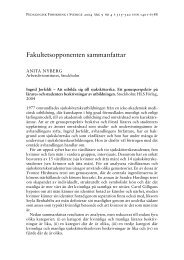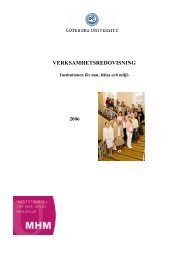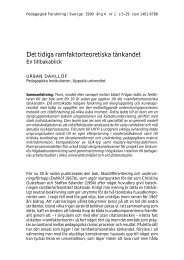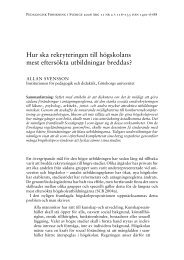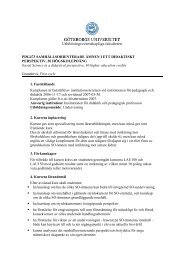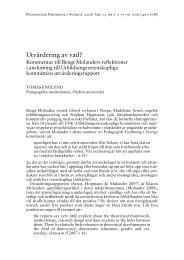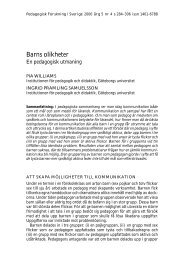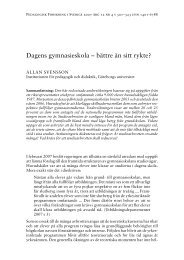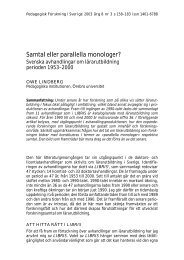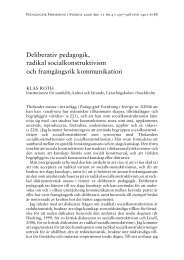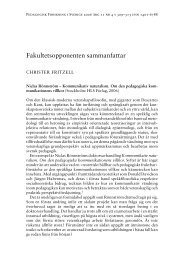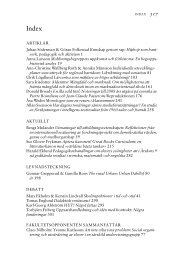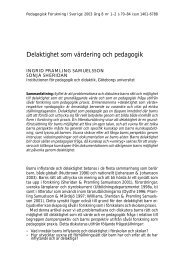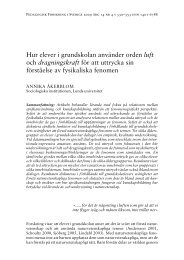University of Oslo Workshops June 29-30 Conference July 1-3 ...
University of Oslo Workshops June 29-30 Conference July 1-3 ...
University of Oslo Workshops June 29-30 Conference July 1-3 ...
You also want an ePaper? Increase the reach of your titles
YUMPU automatically turns print PDFs into web optimized ePapers that Google loves.
Regional Differential Item Function in the International Civics and<br />
Citizenship Education Study<br />
Julian Fraillon, Australian Council for Educational Research, Australia<br />
Wolfram Schulz, Australian Council for Educational Research, Australia<br />
John Ainley, Australian Council for Educational Research, Australia<br />
This paper investigates patterns <strong>of</strong> differential item functioning (DIF) by country and<br />
geographical regions for the student civic knowledge test in the IEA Civic and Citizenship<br />
Education Study (ICCS). Data for 79 test items completed by approximately 140,000<br />
students in more than 5,<strong>30</strong>0 schools across 36countries were analyzed. The investigations<br />
were based on one-parameter IRT (Rasch) analyses <strong>of</strong> the international civic knowledge<br />
test items, by country and overall, to establish measures <strong>of</strong> DIF. These measures were then<br />
were used as data in a cluster analysis to investigate patterns <strong>of</strong> DIF across countries.<br />
Characteristics <strong>of</strong> groups <strong>of</strong> items showing DIF across geographical clusters <strong>of</strong> countries<br />
were then explored. The clustering <strong>of</strong> countries by item DIF appeared to relate primarily to<br />
language <strong>of</strong> testing but with an overlay <strong>of</strong> geo-cultural difference. There were some<br />
idiosyncrasies in the clustering, but two broad geographical country clusters – Europe and<br />
Latin America – were evident in the data. There were insufficient items showing DIF<br />
within the European country cluster to warrant further investigation. In the Latin American<br />
country cluster, DIF appeared to be most clearly associated with the target content and<br />
cognitive processes measured by items. A disproportionately high number <strong>of</strong> items that<br />
targeted ICCS content domain 1 (civic society and systems) and cognitive domain 1<br />
(knowing) showed a pattern <strong>of</strong> DIF that caused them to appear to be relatively easier than<br />
expected within the cluster <strong>of</strong> Latin American countries. There were too few items to<br />
determine whether this pattern related to specific content topics. The results <strong>of</strong> these<br />
analyses support the need for further investigation <strong>of</strong> the relationship between language<br />
structures in items and item level DIF across countries. More specifically, it would be<br />
valuable to explore possible causes <strong>of</strong> the systematic DIF observed across countries in the<br />
Latin American cluster.<br />
Keywords: ICCS; civic education; comparative analysis; differential item function<br />
73



